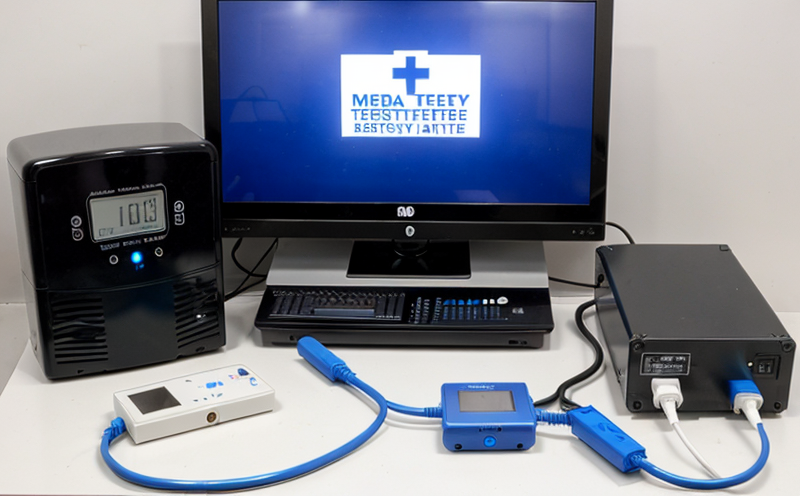UL 1642 Medical Device Lithium Cell Safety Testing
The UL 1642 standard is one of the most comprehensive safety standards for lithium cells, which are widely used in medical devices. This testing ensures that batteries meet stringent requirements to prevent hazards such as overheating, short-circuiting, and fire risks. For quality managers, compliance officers, R&D engineers, and procurement teams involved with medical devices, ensuring adherence to UL 1642 is critical for product safety and regulatory compliance.
The testing process involves a series of mechanical and electrical tests designed to simulate real-world conditions that the battery might encounter during use. These include:
- Over-discharge protection
- Over-charge protection
- Heat abuse test (135°C for 5 hours)
- Puncture test with a steel needle
- Vibration and shock tests to simulate transportation conditions
- Thermal abuse test (85°C, 20°C, -40°C cycles)
- Electrolyte spillage test
- Impulse current injection
The process begins with detailed specimen preparation. Lithium cells are selected based on the medical device's specifications and undergo rigorous testing to ensure they meet all safety criteria defined in UL 1642. The tests must be conducted using specific apparatus that adheres to the standard, such as thermal chambers for heat abuse and mechanical testers for puncture resistance.
Upon completion of the test, detailed reports are generated that provide a comprehensive analysis of how each cell performed under various conditions. These reports serve as crucial documentation for regulatory compliance and product safety assurance. The testing process ensures that batteries used in medical devices do not pose risks to patients or healthcare providers.
The importance of this testing cannot be overstated, especially considering the critical nature of medical devices. Non-compliance with UL 1642 can lead to product recalls, legal issues, and damage to brand reputation. Ensuring that your company's products meet these standards is not only a regulatory requirement but also a commitment to patient safety.
Why It Matters
The medical device industry relies heavily on lithium cells for powering various devices such as pacemakers, insulin pumps, and other life-saving equipment. The reliability and safety of these batteries are paramount to ensuring the functionality and effectiveness of the devices they power. Ensuring compliance with UL 1642 is crucial because:
- It protects patients from potential hazards associated with battery failures.
- It enhances product reputation by demonstrating a commitment to high standards.
- It simplifies regulatory compliance, reducing the risk of non-compliance penalties.
The testing process is not just about meeting legal requirements; it's also about ensuring that devices function reliably and safely in real-world conditions. This standard has been designed with these considerations in mind, making it a vital component of medical device development and quality assurance.
Eurolab Advantages
At Eurolab, we offer unparalleled expertise in UL 1642 testing. Our state-of-the-art facilities and experienced team ensure that your products receive the highest quality service:
- Comprehensive Testing Capabilities: We have the equipment and know-how to conduct all required tests as per UL 1642.
- Expertise in Medical Devices: Our professionals understand the unique challenges associated with testing batteries for medical devices.
- Rapid Turnaround Times: Get your results quickly without compromising on quality.
- Comprehensive Reporting: Detailed reports that provide insights into every aspect of the testing process.
We pride ourselves on delivering services that meet or exceed international standards, ensuring that your products are safe and reliable. Partner with Eurolab for peace of mind and confidence in your product safety.
Environmental and Sustainability Contributions
- Eco-friendly Testing: By conducting UL 1642 tests, we ensure that medical device batteries are safe from hazards that could lead to environmental pollution.
- Sustainable Product Design: Ensuring battery safety through testing encourages the design of more sustainable products by identifying potential risks early in the development process.
The UL 1642 standard not only promotes product safety but also supports a more sustainable medical device industry. By adhering to these stringent standards, manufacturers can contribute positively to environmental conservation and public health.





